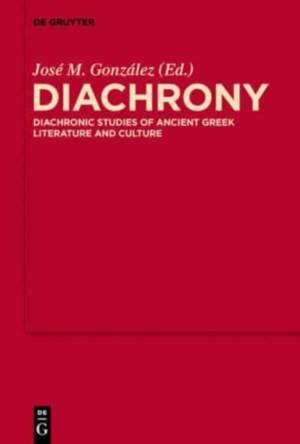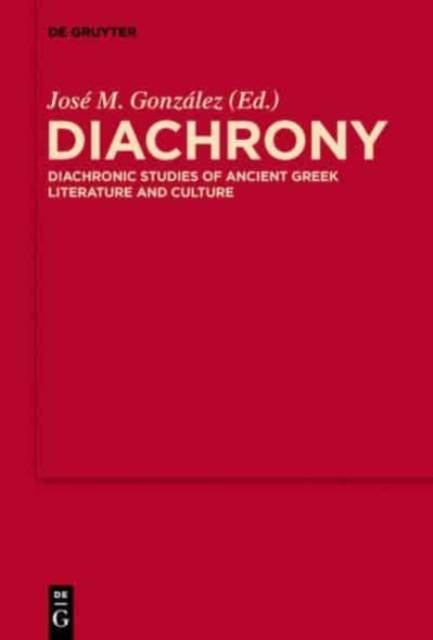
- Afhalen na 1 uur in een winkel met voorraad
- Gratis thuislevering in België vanaf € 30
- Ruim aanbod met 7 miljoen producten
- Afhalen na 1 uur in een winkel met voorraad
- Gratis thuislevering in België vanaf € 30
- Ruim aanbod met 7 miljoen producten
Diachrony
Diachronic Studies of Ancient Greek Literature and Culture
Omschrijving
Not a few of the more prominent and persistent controversies among classical scholars about approaches and methods arise from a failure to appreciate the fundamental role of time in structuring the interpretation of Greek culture. Diachrony showcases the corresponding importance of diachronic models for the study of ancient Greek literature and culture. Diachronic models of culture reach beyond mere historical change to the systemically evolving dynamics of cultural institutions, practices, and artifacts. The papers collected here illustrate the construction and proper use of such models. They emphasize the complementarity of synchronic and diachronic perspectives and highlight the need to assess how well diachronic models fit history. The contributors to this volume strive to be methodologically explicit as they tackle a wide range of subjects with a variety of diachronic approaches. Their work shows both the difficulty and the promise of diachronic analysis. Our incomplete knowledge of Greek antiquity throughout time and the Greeks' own preoccupation with the past in the construction of their present make diachronic analysis not just invaluable but indispensable for the study of ancient Greek literature and culture.
Specificaties
Betrokkenen
- Uitgeverij:
Inhoud
- Aantal bladzijden:
- 408
- Taal:
- Engels
- Reeks:
- Reeksnummer:
- nr. 7
Eigenschappen
- Productcode (EAN):
- 9783110425376
- Verschijningsdatum:
- 27/11/2015
- Uitvoering:
- Hardcover
- Formaat:
- Genaaid
- Afmetingen:
- 156 mm x 234 mm
- Gewicht:
- 807 g

Alleen bij Standaard Boekhandel
Beoordelingen
We publiceren alleen reviews die voldoen aan de voorwaarden voor reviews. Bekijk onze voorwaarden voor reviews.










